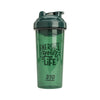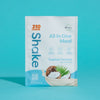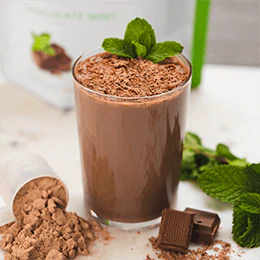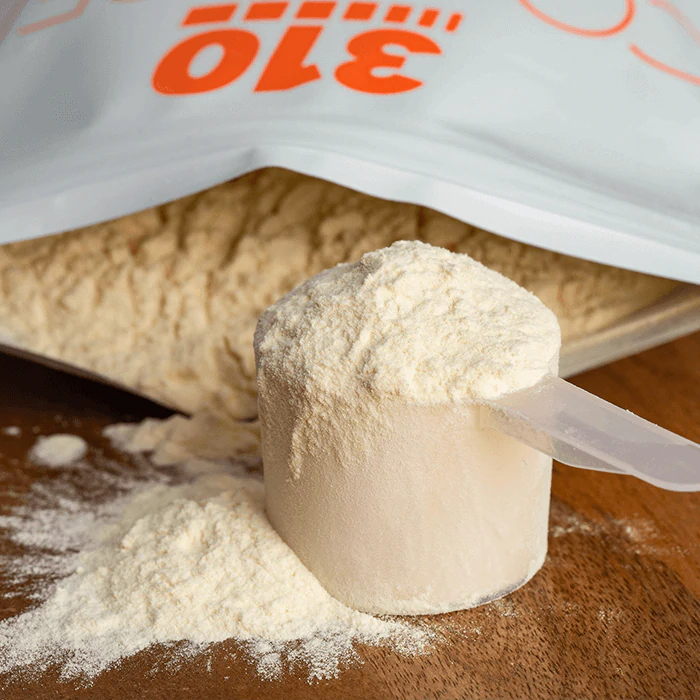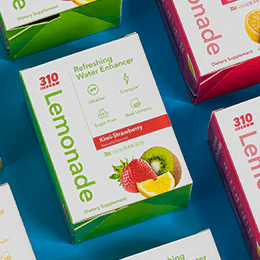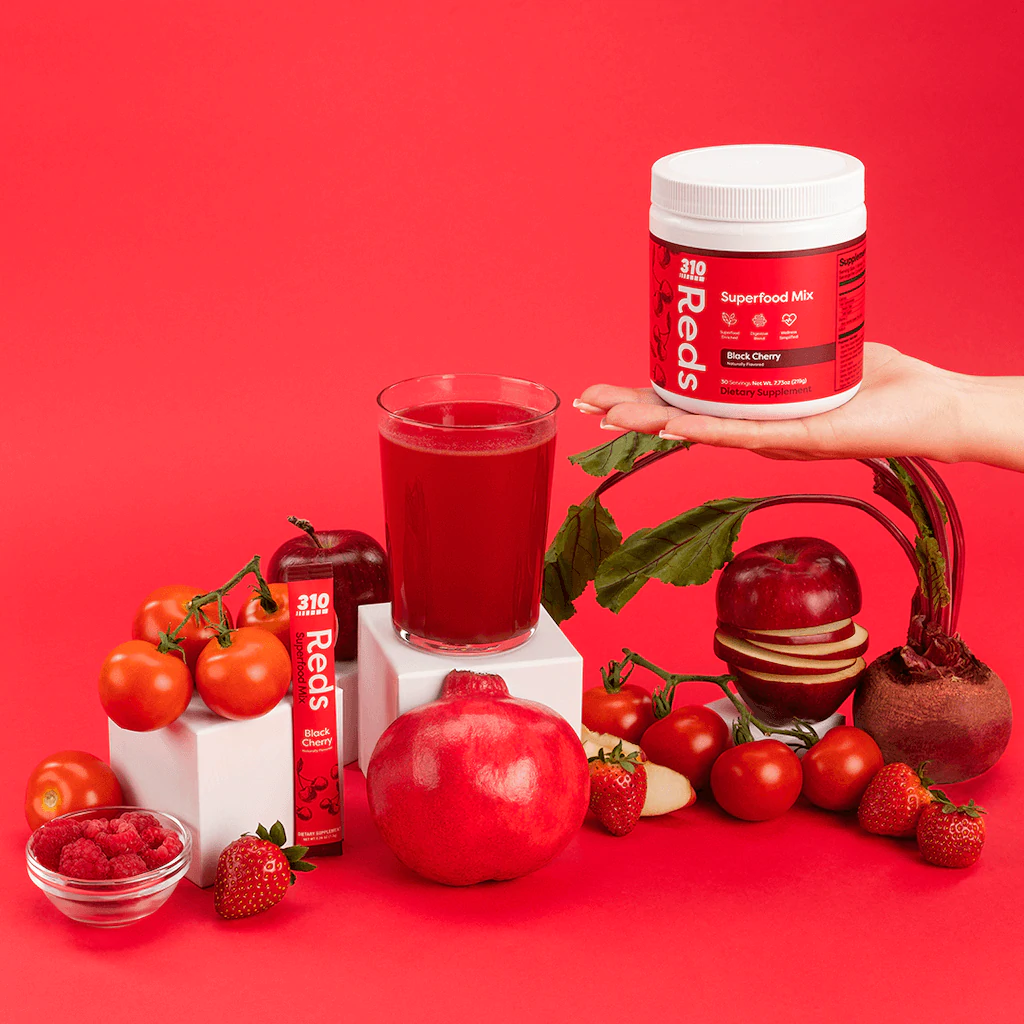Have you been trying to lose weight or live a healthier lifestyle, but you’re not seeing the results you desire? It could be because you’re eating or drinking things that seem healthy, when they actually aren’t. In reality, lots of “diet” or “low-fat” foods seem like smart options, but the listed ingredients are nothing short of scary, and are thwarting your efforts.
Lots of “diet” or “low-fat” foods seem like smart options, but the listed ingredients are nothing short of scary, and are thwarting your efforts.
Don’t worry, we’re going to break it all down for you in this article, so you can be armed with the truth! We’ll reveal 10 foods that might appear to be healthy choices, but absolutely aren't. Plus, we’ll offer an "Action Plan" for each listed food - with recommendations on what you can choose instead for glowing health and vitality.
1) Some Plant-Based Oils

Certain oils (like olive and coconut) are undoubtedly an important part of a healthy diet – providing healthy fats to your body and supporting heart health. However, it’s important to remember that even good fats are high in calories, and you should eat them in moderation.
In addition, some oils are healthier than others because of the way they’re processed and due to their omega-6 to omega-3 ratio. While omega-6 and omega-3 fatty acids are both essential to good health, there’s an imbalance in how much people consume in Western countries; In short, people are getting too many omega-6 fats and not enough omega-3 fats. Some estimate this ratio to be as high as 20:1, since vegetable oils are used in many processed foods.
Action Plan:
Do consume oils that are minimally processed and have a better ratio of omega-6 to omega-3 fatty acids, like olive, coconut and avocado oils; Like anything else, these should be eaten in moderation, as fits into your health and calorie goals. But limit or eliminate your intake of oils that are highly-processed and high in omega-6s including the following oils: canola, corn, cottonseed, sunflower, peanut, sesame and rice bran. We also recommend that you eliminate processed foods (such as pre-packaged baked goods and potato chips) from your diet, and choose healthier alternatives.
2) Fat Free Salad Dressings
 As we just mentioned, some fats are good for you… So, don’t be scared of them! In fact, many people are discovering immense health and weight loss benefits from the keto diet – which focuses on healthy fats as 75% of your daily calories.
As we just mentioned, some fats are good for you… So, don’t be scared of them! In fact, many people are discovering immense health and weight loss benefits from the keto diet – which focuses on healthy fats as 75% of your daily calories.
The bottom line is, fat-free salad dressing is not doing you any favors. This is because the manufacturer still has to do something to make it taste good, once they remove the fat (or oil). These fat- free dressings are therefore usually chock-full of preservatives, sugars, added sodium, artificial sweeteners and flavors.
Action Plan:
Look for a salad dressing that does include healthy fats (like olive or avocado oil), as one of the main ingredients, that’s also low in sugar, and doesn’t contain artificial or chemical ingredients. The more natural, the better! In fact, your best option is to make your own with a healthy oil, vinegar, some lemon or lime and dried or fresh herbs. Either way, enjoy the healthier full-fat salad dressing in moderation, as part of your overall daily calorie plan.
3) Diet Drinks

Just because it has the word “diet” in it, doesn’t mean it’s healthy! And it doesn’t make it fit for your weight loss or healthy lifestyle plan, either. Diet beverages (like soda, juices, ice teas and lemonades) may be tempting, because they typically still taste good while containing little to no calories. But doesn’t that make you wonder what they actually do contain, and what that could be doing to your body?
Diet beverages contain artificial sweeteners, along with a slew of who-knows-what chemically-created ingredients. And studies show that not only may these fake sweeteners lead to health problems down the road with excessive use, but they may actually LEAD to weight gain!
Diet Beverages are actually WAY sweeter than table sugar. But because they don’t contain calories, they confuse your brain and make you crave high-sugar, high-calorie foods even more. So, basically they sabotage your efforts and may cause you to eat more sugar and calories – exactly what you’re trying to avoid.
How do they do this? Since they’re actually WAY sweeter than table sugar but don’t contain calories, they confuse your brain and make you crave high-sugar, high-calorie foods even more. So, basically they sabotage your efforts and may cause you to eat more sugar and calories – exactly what you’re trying to avoid.
Just a note here that we aren’t talking about Stevia – which is a natural, plant-based sugar alternative. Although Stevia is also sweeter than sugar, studies show that it does not increase hunger or make you crave more sugary foods the way that artificial sweeteners do.
Action Plan:
Just say no to diet drinks. If a product contains any type of artificial or chemical ingredients, you shouldn’t be putting it into your body – as it’s going to work against your health and weight loss goals.
Instead, if you want to drink something other than water, make it a truly healthy choice. For instance, 310 Lemonades are also low in calories (10-13 calories per serving), but they don’t contain artificial ingredients. Instead, they contain a metabolism-boosting, caffeine-free green tea extract and alkalizing minerals that increase energy naturally. Plus, they come in lots of yummy flavors!
Other great choices are green juices (make them yourself or use a green juice powder), and herbal detox teas.
4) Sugary Protein Powders

Without mentioning names, some of the protein powders out there disguised as “health products” are simply full of junk: sugar, artificial sweeteners, chemical flavorings, unhealthy thickeners and more.
But, if you choose the right product, meal replacement shakes greatly benefit your health, and support healthy weight loss and weight maintenance.
Action Plan:
Always check product labels and choose a high-quality protein powder that’s low in calories and contains nourishing ingredients, with no artificial junk. Our weight loss shakes contain 90 calories, 15g of plant-based protein, and 5g of fiber in every serving.
Plus, they have no sugar or artificial sweeteners, and they’re packed with superfoods, vitamins, minerals, and probiotics for gut health.
5) Low-Calorie Yogurts & Other Snacks

As mentioned when discussing diet drinks, “low-calorie” options just aren’t healthy for you. Period. Low-calorie yogurts are a great example, typically containing artificial sweeteners and thickeners in place of sugar and fat. In addition, these ultra-processed yogurts are missing the good, live bacteria you’ll only find in more raw forms of yogurt, or a probiotics supplement.
Action Plan:
Avoid all sugary, processed yogurts (low-calorie or not). Instead, opt for plain, full-fat Greek yogurt in moderation, and add fresh fruit for some sweetness. The Greek yogurt may be higher in fat and calories, but it won’t have the sugar or artificial sweeteners, which are really the bad guys when it comes to your health.
6) Gluten-Free Baked Goods

Whether or not you actually have to follow a gluten-free diet for health reasons, gluten-free pre-packed goods are simply not a healthy option. Just because a cookie or snack cake is gluten-free, doesn’t make it good for you!
In fact, many gluten-free items in general are higher in calories than whole wheat ones. In addition, many contain questionable ingredients in order to make them taste better.
Action Plan:
Eat a nutritious diet that includes real, whole foods – not packaged, processed items. If you truly can’t eat gluten, don’t look for alternatives to bread and cookies. Instead, learn to eat more healthy fats, lean proteins, and healthy fruits and veggies.
If you truly can’t live without the other stuff, then try making make your own gluten-free baked goods, or look for local bakeries that use high-quality ingredients in their gluten-free selections.
7) Whole Grain & Multigrain Bread, Pasta, Etc.

In the same way, just because something says “whole grain” or “multigrain” doesn’t immediately make it healthy. At the end of the day, portions still matter, and whole grain foods don’t give you a free pass to eat as much as you want – since you have to watch your calories overall.
In addition, many people confuse multigrain with whole grain, thinking they are interchangeable, but they aren’t. While whole grain means that all parts of the grain kernel are used, multigrain means more than one type of grain is used – but none of them may be whole grains. True whole grains are the healthiest choice because they contain the natural fiber and other nutrients found in the grain kernel.
Action Plan:
Whole grain foods can be part of a healthy diet, in moderation. Read labels carefully to make sure you’re really getting whole grain items (check for ingredients that say whole wheat, whole oats or something similar). But your best bet is to trade in the packaged items as often as possible for healthier, whole food carbs (such as sweet potatoes, quinoa, brown rice, etc.).
8) Restaurant Salads

I know what you’re thinking… but a salad is healthy! That really depends. The truth is, most salads, especially those you will find at sit-down or take-out restaurants, are anything but healthy. Why? Just because it starts with lettuce, you have to take all the ingredients into account.
If the salad is loaded with extra cheese, fried toppings, and gobs of chemical-filled dressing, then the “healthy” part will be totally undermined.
Action Plan:
If you’re going to get a salad, pay attention to what’s on it. All veggies are okay, but get anything else on the side so that you can control the portion. The same goes with the dressing… make sure it’s on the side, since it will typically be high in sugar and fat. Your safest bet is to get a simple blend of olive oil and vinegar when eating away from home.
9) Low-Fat Products
Just like with the diet drinks, low-fat or reduced-fat products (such as potato chips or peanut butter) are not doing you any favors. Remember, companies have to replace the fat with something, and certain healthy fats are not bad for you! In fact, many fats are actually good for you, provide satiety, and benefit your overall health.
Action Plan:
Just say no to low-fat products. Instead, eat sensible portions of full-fat items that fit into your dietary and calorie goals.
10) Packaged Snack Mixes

Lots of pre-packaged “trail mixes” are often disguised as healthy, while containing lots of unhealthy ingredients. For instance, they may contain sugary candies and heavily seasoned “crunchy bits”. In addition, expect lots of preservatives, highly-processed sweeteners and even partially hydrogenated oils (or trans fats which are super bad for your health).
Action Plan:
A good rule of thumb is to avoid anything pre-packaged as much as possible. A better option? Make your own trail mix! We promise, it isn’t hard. Just add some nuts, seeds, coconut flakes, and even small amounts of dark chocolate chips into a bowl and mix them together! This will actually be good for you, and taste great!
Want more tips for living a healthy lifestyle? Check out more 310 Blog articles for expert diet and lifestyle advice, along with great recipes. In addition, join our 310 Nutrition Community on Facebook to get personalized guidance to help you achieve your health and weight loss goals.
Sources:
https://www.foodnetwork.com/healthy/packages/healthy-every-week/healthy-tips/11-foods-that-are-ruining-your-diethttps://www.healthline.com/nutrition/are-vegetable-and-seed-oils-bad#section3
https://draxe.com/nutrition/article/artificial-sweeteners/
https://www.healthline.com/nutrition/why-trans-fats-are-bad

